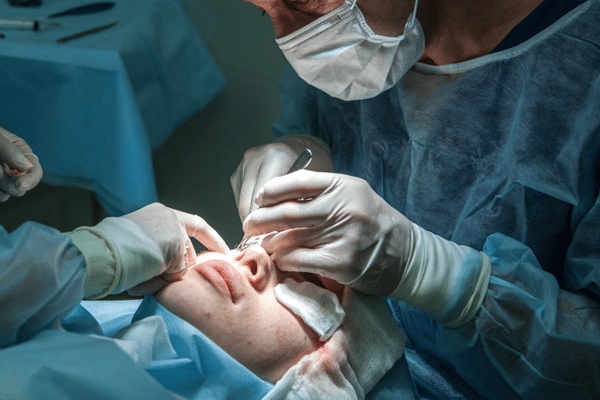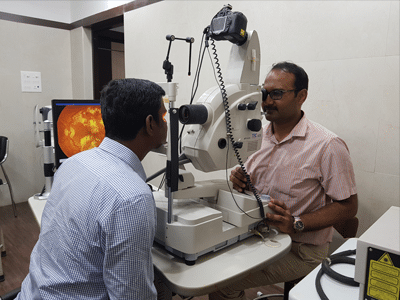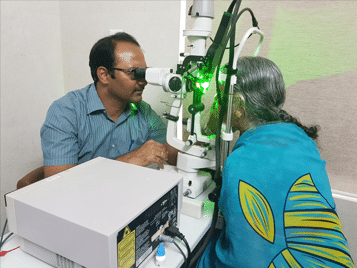Diabetes causes eye problems and may lead to blindness. People with diabetes do have a higher risk of blindness than people without diabetes. We are Certified as a specialized eye disease treatment clinic in Sivakasi.
What is the Retina?
The retina is the inner most layer of the eye which receives the light entering the eye. The retina sends the light signal to the brain through the Optic nerve. One part of the retina is specialized for seeing fine detail. This tiny area for sharp vision which is required for reading, writing and color differentiation is called the macula.

What does diabetes do to the eyes?
Diabetic Retinopathy:
Diabetic retinopathy is a general term for all diseases of the retina caused by diabetes. There are two stages of retinopathy: nonproliferative and proliferative.
Nonproliferative Retinopathy:
In nonproliferative retinopathy, the initial stage of retinopathy, Blood vessels in the retina form pouches called Microaneurysms, then the blood vessels become blocked. Then the blood vessels become leaky. When the macula swells with fluid, it is called macula edema which leads to vision Loss.
Although initial nonproliferative retinopathy usually does not require treatment, macular edema must be treated promptly.
Nonproliferative Retinopathy:
In nonproliferative retinopathy, the initial stage of retinopathy, Blood vessels in the retina form pouches called Microaneurysms, then the blood vessels become blocked. Then the blood vessels become leaky. When the macula swells with fluid, it is called macula edema which leads to vision Loss.
Although initial nonproliferative retinopathy usually does not require treatment, macular edema must be treated promptly.

What is the treatment of the Diabetic Retinopathy?
The treatment is usually in the form of laser (Photocoagulation) or rarely an injection (Anti-VEGF) is given in the eye.
Photocoagulation:
Involves focusing and applying laser spots on the retina to seal the leaking and blood vessels. The aim of this treatment is to protect central vision. It does not restore lost vision, but it can prevent further deterioration, which is why early diabetic retinopathy diagnosis through regular eye examination is important.
What are Anti VEGF agents, and what is their role in managing diabetic retinopathy?
Anti VEGF agents (Avastin, Macugen) are emerging as the new modality of treatment for various stages of diabetic retinopathy. These agents are injected into the eye (intravitreal injection). They are commonly used in diabetic maculopathy and proliferative diabetic retinopathy.
How frequent should a diabetic have eye check up?
Every patient once diagnosed to have diabetes should have regular eye check ups every 6 months or more frequently depending on the severity of the disease.
Fundus Fluorescein Angiography (FFA):
This is a diagnostic procedure where fluorescein dye is injected into a vein of the hand and then a series of photographs of the patient’s retina are taken. This helps us to know the status of the blood vessels in retina and shows the abnormal leaking vessels and abnormal new blood vessels. The treatment is decided following this Investigation.
Diagnostics & Facilities
Dr Anil Kumars Eye Hospital has a fully equipped specialty clinic to manage diabetic retinopaty and all other retinal disorders.
Heine Indirect Ophthalmoscopy: To examine the Retina till the periphery
90 D Slit-Lamp Ophthalmoscopy: To examine the central retina and macula
Topcon digital Fundus Angiography & color photography (Japan): to study the blood vessels of the retina and to identify the leaking vessels.
Iridex green Laser System (USA): For treating the leaking blood vessels and damaged retina.
AntiVEGF pharmacotherapy

Fluorescein Angiography

Green Laser Machine


